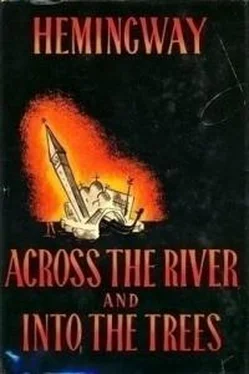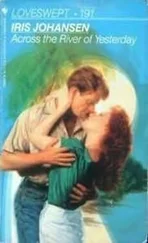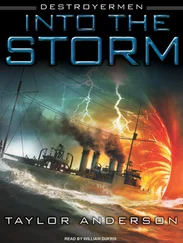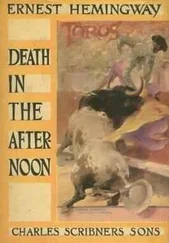Then he turned his back on them, without waiting to see the effect of his remark, and walked to the bar. From the bar you could watch your luggage, just as well as the two pescecani were watching theirs.
He is probably a Commendatore, he thought. She is a beautiful, hard piece of work. She is damned beautiful, actually. I wonder what it would have been like if I had ever had the money to buy me that kind and put them into the mink? I'll settle for what I have, he thought, and they can go and hang themselves.
The bar–tender shook hands with him. This bar–tender was an Anarchist but he did not mind the Colonel being a Colonel at all. He was delighted by it and proud and loving about it as though the Anarchists had a Colonel, too, and in some ways, in the several months that they had known each other, he seemed to feel that he had invented, or at least erected, the Colonel as you might be happy about participating in the erection of a campanile , or even the old church at Torcello.
The bar–tender had heard the conversation, or, rather, the flat statement at the table and he was very happy.
He had already sent down, via the dumb–waiter, for a Gordon's gin and Campari and he said, 'It is coming up in that hand–pulled device. How does everything go at Trieste?'
'About as you would imagine.'
'I couldn't even imagine.'
'Then don't strain,' the Colonel said, 'and you will never get piles.'
'I wouldn't mind it if I was a Colonel.'
'I never mind it.'
'You'd be overrun like a dose of salts,' the waiter said.
'Don't tell the Honorable Pacciardi,' the Colonel said.
He and the bar–tender had a joke about this because the Honourable Pacciardi was Minister of Defence in the Italian Republic. He was the same age as the Colonel and had fought very well in the first world war, and had also fought in Spain as a battalion commander where the Colonel had known him when he, himself, was an observer. The seriousness with which the Honourable Pacciardi took the post of Minister of Defence of an indefensible country was a bond between the Colonel and the bar–tender. The two of them were quite practical men and the vision of the Honourable Pacciardi defending the Italian Republic stimulated their minds.
'It's sort of funny up there,' the Colonel said, 'and I don't mind it.'
'We must mechanize the Honourable Pacciardi,' the bar–tender said. 'And supply him with the atomic bomb.'
'I've got three of them in the back of the car,' the Colonel said. 'The new model, complete with handles. But we can't leave him unarmed. We must supply him with botulism and anthrax.'
'We cannot fail the Honourable Pacciardi,' the bar–tender said. 'Better to live one day as a lion than a hundred years as a sheep.'
'Better to die on our feet than to live on our knees,' the Colonel said. 'Though you better get on your belly damn fast if you want to stay alive in plenty places.'
'Colonel, do not say anything subversive.'
'We will strangle them with our bare hands,' the Colonel said. 'A million men will spring to arms overnight.'
'Whose arms?' the bar–tender asked.
'All that will be attended to,' the Colonel said. 'It's only a phase in the Big Picture.'
Just then the driver came in the door. The Colonel saw that while they had been joking, he had not watched the door and he was annoyed, always, with any lapse of vigilance or of security.
'What the hell's been keeping you, Jackson? Have a drink.'
'No, thank you, sir.'
You prissy jerk, the Colonel thought. But I better stop riding him; he corrected.
'We'll be going in a minute,' the Colonel said. 'I've been trying to learn Italian from my friend here.' He turned to look at the Milan profiteers; but they were gone.
I'm getting awfully slow, he thought. Somebody will take me any day now. Maybe even the Honourable Pacciardi, he thought.
'How much do I owe you?' he asked the bar–tender shortly.
The bar–tender told him and looked at him with his wise Italian eyes, not merry now, although the lines of merriment were clearly cut where they radiated from the corners of each eye. I hope there is nothing wrong with him, the bar–tender thought. I hope to God, or anything else, there's nothing really bad.
'Good–bye, my Colonel,' he said.
' Ciao ,' the Colonel said. 'Jackson, we are going down the long ramp and due north from the exit to where the small launches are moored. The varnished ones. There is a porter with the two bags. It is necessary to let them carry them since they have a concession.'
'Yes, sir,' said Jackson.
The two of them went out the door and no one looked back at anyone.
At the imbarcadero , the Colonel tipped the man who had carried their two bags and then looked around for a boatman he knew.
He did not recognize the man in the launch that was first on call, but the boatman said, 'Good day, my Colonel. I'm the first.'
'How much is it to the Gritti?'
'You know as well as I, my Colonel. We do not bargain. We have a fixed tariff.'
'What's the tariff?'
'Three thousand five hundred.'
'We could go on the vaporetto for sixty.'
'And nothing prevents you going,' the boatman, who was an elderly man with a red but un–choleric face, said. 'They won't take you to the Gritti but they will stop at the imbarcadero past Harry's, and you can telephone for someone from the Gritti to get your bags.'
And what would I buy with the God–damn three thousand five hundred lire; and this is a good old man.
'Do you want me to send that man there?' he pointed to a destroyed old man who did odd jobs and ran errands around the docks, always ready with the un–needed aid to the elbow of the ascending or descending passenger, always ready to help when no help was needed, his old felt hat held out as he bowed after the unneeded act. 'He'll take you to the vaporetto. There's one in twenty minutes.'
'The hell with it,' the Colonel said. 'Take us to the Gritti.'
' Con piacere ,' the boatman said.
The Colonel and Jackson lowered themselves into the launch which looked like a speed boat. It was radiantly varnished and lovingly kept and was powered with a marine conversion of a tiny Fiat engine that had served its allotted time in the car of a provincial doctor and had been purchased out of one of the graveyards of automobiles; those mechanical elephant cemeteries that are the one certain thing you may find in our world near any populated centre; and been re–conditioned and re–converted to start this new life on the canals of this city.
'How is the motor doing?' the Colonel asked. He could hear her sounding like a stricken tank or T.D., except the noises were in miniature from the lack of power.
'So–so,' the boatman said. He moved his free hand in a parallel motion.
'You ought to get the smallest model Universal puts out. That's the best and lightest small marine engine I know.'
'Yes,' the boatman said. 'There are quite a few things I should get.'
'Maybe you'll have a good year.'
'It's always possible. Lots of pescecani come down from Milano to gamble at the Lido. But nobody would ride twice in this thing on purpose. As a boat, it is fine, too. It is a well built, pleasant boat. Not beautiful as a gondola is, of course. But it needs an engine.'
'I might get you a jeep engine. One that was condemned and you could work it over.'
'Don't talk about such things,' the boatman said. 'Things like that don't happen. I don't want to think about it.'
'You can think about it,' the Colonel said. 'I'm talking true.'
'You mean it.'
'Sure. I don't guarantee anything. I'll see what I can do. How many children have you got?'
'Six. Two male and four female.'
'Hell, you mustn't have believed in the Regime. Only six.'
Читать дальше
Конец ознакомительного отрывка
Купить книгу












